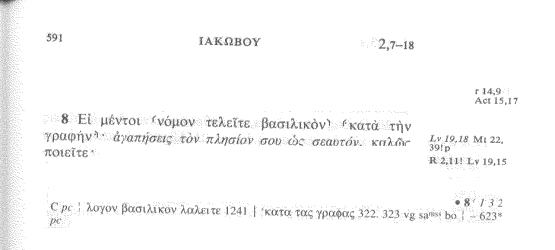The Epistle of James is widely regarded as one of the oldest books in the New Testament. Many scholars date it to around 45 AD, which would place it before the Apostolic Council in Jerusalem, held in 50 AD. This makes it one of the earliest, if not the very first, Christian writings produced after the death of Jesus.
You did a good job here. Even though some scholars date it as late as 60 CE, it would still be one of the very earliest texts, either before Paul's epistles or concurrent with them.
I believe it's an excellent book for understanding the historical Jesus.
That would depend to a large extent whether it was actually written by James the brother of Jesus or someone else. Scholars are divided on this. For the sake of having a coherant post, let's proceed on the assumption that it actually was written by James.
Well, James believed his brother was the messiah. It doesn't mean it was true. It simply means that's his belief.
2) "ch. 1:1".) twelve tribes who are [b]dispersed abroad. > twelve tribes who are [b]dispersed abroad
Sure, he wrote to Jewish believers in Jesus who were in the diaspora. I'm not sure why you think this is a significant point.
3) "ch. 1:4".) [e]endurance have its perfect > Are these Jewish concepts?
Or steadfastness
James 1:4 (NIV) states: "Let perseverance finish its work so that you may be mature and complete, not lacking anything."
This just sounds like good advice that most people would give.
4) "ch. 1:17".) Father of lights > Is it a Jewish concept?
The phrase "Father of lights" is not found in any other known text written by a Jew. It might be pieced together by James drawing from the Jewish understanding of God as father, and the fact that Genesis speaks of God creating the great lights: sun, moon, and stars. Clearly, however, the turn of phrase is James' own invention.
5) "ch. 1:18".) In the exercise of His will He brought us forth by the word (logos) of truth, so that we would be [s]a kind of first fruits [t]among His creatures. > This apparently explains John 1:1-3 and has nothing to do with the creation of the earth and the heavens, but with the metaphysical kingdom of Jesus! he said, My kingdom is not of this world. John 18:36.
I don't think you that you can conclude this refers to John 1:1-3 simply because it uses the word logos. The author of John treated logos as a person. That's not what James is doing here. I also don't see any connection between this verse and your other conclusions.
6) "ch. 1:27".) Pure and undefiled religion in the sight of our God and Father is this: to visit orphans and widows in their distress, and to keep oneself unstained [ac]by the world. > Are these Jewish concepts?
Yes, this is absolutely a Jewish concept. Judaism, while it does have certain beliefs, the beliefs are not core. The core of Judaism is right behavior. The concept of tzedakah is a big huge major part of Judaism. It refers to our responsibility to care for the poor and vulnerable.
The word tzedakah is often translated as charity, but its root word actually means justice, so perhaps a better translation might be social justice. Unlike charity which is voluntary, tzedakah is mandatory. There are quite a few laws in the Torah that give instructions on how to care for the poor.
Today, religious Jews set aside 10% of our income for charities. This money is not what goes to support our synagogues. It is specifically meant for the poor, the sick, the old, the oppressed, and things which make a better world for all.
The idea behind tzedakah is this: Everything belongs to God, who entrusts it to us. Part of what he entrusts us is on behalf of the poor, and it is our job to make sure it gets to them.
7) "ch. 2:10" For whoever keeps the whole Law, yet stumbles in one point, has become guilty of all. > The church complied with the law.
This is one verse in James that absolutely goes against Jewish teaching. The standard for being righteous is not perfection, nor does slipping up make one wicked. The standard of righteousness is repenting when we fail.
Proverbs 24:16 For a righteous man may fall seven times And rise again
:
8) "ch. 2:12-13" So speak, and so act, as those who are to be judged by the law of freedom. For judgment will be merciless to one who has shown no mercy; mercy [i]triumphs over judgment. > "the law of freedom" Is it a Jewish concept? Did this concept support the Jerusalem council regarding the Gentiles?
There is no other Jewish text that uses this phrase; it is another "James-ism."

However the idea it portrays, that obedience to the law is liberating, is certainly a Jewish one. Psalm 119:
7 The law of the Lord is perfect, converting the soul: the testimony of the Lord is sure, making wise the simple.
8 The statutes of the Lord are right, rejoicing the heart: the commandment of the Lord is pure, enlightening the eyes.
9 The fear of the Lord is clean, enduring forever: the judgments of the Lord are true and righteous altogether.
10 More to be desired are they than gold, yea, than much fine gold: sweeter also than honey and the honeycomb.
9) "ch. 2:19" You believe that [n]God is one. You do well; the demons also believe, and shudder > The doctrine of Unity.
James 2:19 One early ms there is one God
I don't think the idea that Jews were monotheists came as a great shock to anyone.
To be continued in my next post.

